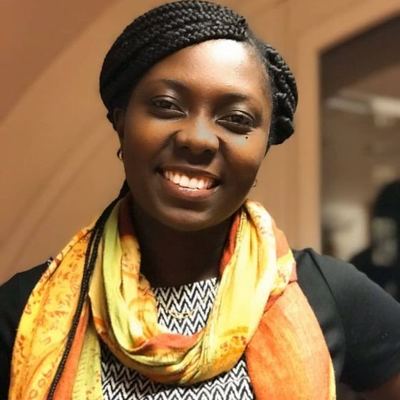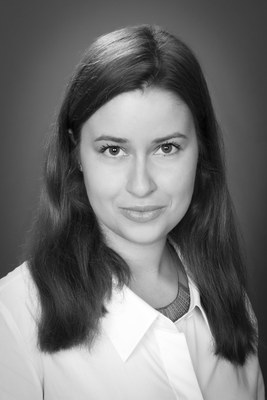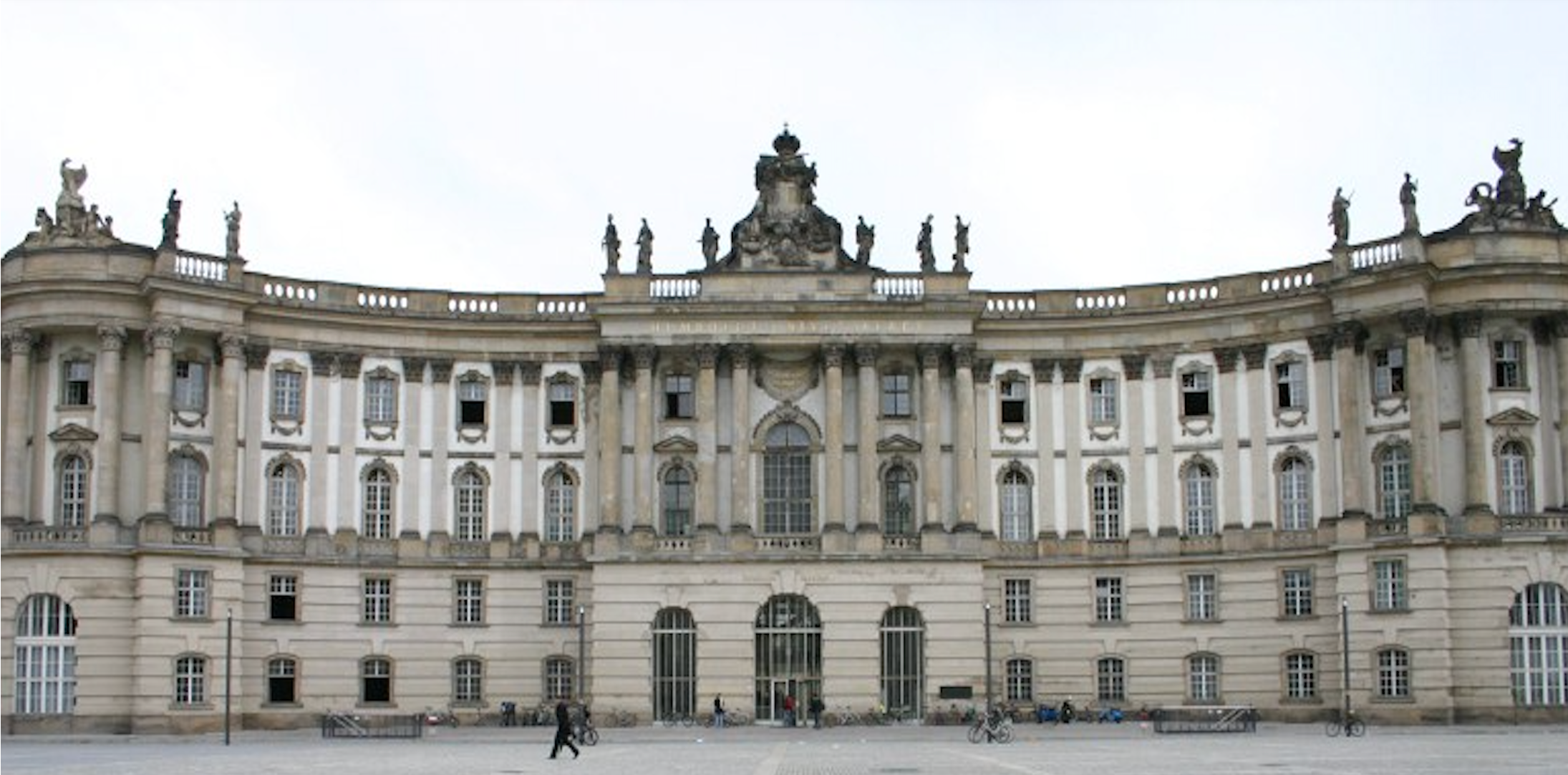Class of 2019/2020
Esther Ewuraesi Cato (Ghana)
Esther has a bachelor of laws degree from University of Ghana, Legon. During her national service she had the privilege of working with the Chief Justice of her home country. She is looking forward to exploring all the opportunities on offer having obtained the IDR LL.M., such as working and gaining experience in the field of arbitration.

1. Why have you decided to pursue a Master of Laws degree abroad?
I developed an interest in dispute resolution as a student pursuing my Bachelor of Laws Degree. I then decided to further my studies abroad in dispute resolution upon completion of my Bachelor’s. When I learned about the International Dispute Resolution LL.M offered by Humboldt University of Berlin, I was very excited and applied immediately. I really wanted to study abroad to explore different cutures and grow personally and professionally in an international environment. With this LL.M., I had the opportunity to combine studying and experiencing other cultures all at once.
2. What was the decisive reason for you to apply for the IDR LL.M. at Humboldt University of Berlin?
For me it was all about the content of the program and its specialisation. I was very interested in arbitration and when I saw that I would also study various dispute resolution methods, investment arbitration and private international law, I decided to jump on board.
3. How did you feel about the atmosphere in the class?
I really liked the atmosphere in the class: the openness, friendliness and sense of joint adventure was what I enjoyed the most. The students organized various events outside the classroom and stayed in touch throughout the lockdown, which I really appreciated.
4. Did you enjoy living and studying in Berlin?
Yes!!! I really enjoyed my time my living and studying in Berlin even though we had to turn to virtual studies for the summer semester due to COVID-19. I enjoyed every single experience, including the events that were held by the university.
5. Do you think that the IDR LL.M. curriculum is demanding? How did you cope with the workload, considering the different mandatory modules, the master thesis, the optional internship and the practical workshops?
While demanding, I do not think the IDR LL.M. curriculum is too demanding. For me it was well balanced and manageable.
It all depends on what you want. If you want to excel and use the opportunities offered by the program to the fullest you just have to devote some of your spare time and participate fully in the program.
6. Which modules did you like the most and why?
I really liked all the modules. and I was excited to be involved and learn more about everything that was offered. The lecturers made the modules very interesting and practical and so I could relate and understand what they were teaching more easily.
7. Any highlights of the IDR LL.M. adventure in Berlin?
There are several highlights I would take with me from my IDR LL.M. adventure. To name a few: the guest lectures from partners from various law firms and experts in the field of arbitration and the Christmas party that was held at WAGNER Arbitration, the informal class picnic in the Lustgarten at the end of the second semester, which was a definite highlight given that given that we hadn’t seen each other personally in months on account of COVID-19.
8. What are your plans for after the graduation?
I wish to explore job opportunities available here in Germany or further my studies before leaving to my home country, Ghana.
9. Would you recommend the IDR LL.M. to other young lawyers? Why?
Yes!!! Because the course is quite distinct from other LL.M.s that I have researched and is ideal if you are interested in international arbitration or really any commercial dispute resolution method. As a bonus, Berlin is a vibrant city with endless activities to enjoy.
_____________________________________________________________________
Magdalena Gutowska (Poland)
Magda graduated from Queen Mary, University of London. Alongside English law, she simultaneously studied Polish law (long-cycle Master's degree) at the Adam Mickiewicz University of Poznań. Over the course of her studies, she worked as an intern in various law firms, both in London and Poland. After finishing the LL.M in International Dispute Resolution, she will continue her Polish law studies so as to then proceed with undertaking a bar traineeship in Poland. She is also intending to continue her academic path, and plans to study for a PhD degree, preferably also abroad.

1. Why have you decided to pursue a Master of Laws degree abroad?
I have always strongly believed that studying and practicing law requires broad horizons and open-mindedness, as well as intellectual creativity and perceptiveness. This is what I thought studying law abroad would offer, and I reckon I was not mistaken.
2. What was the decisive reason for you to apply for the IDR LL.M. at Humboldt University of Berlin?
I was really interested in the structure of the programme and the opportunities the IDR LL.M offers. Not without importance of course, was the unquestionable renown of Humboldt University of Berlin and its quality of teaching.
3. How did you feel about the atmosphere in the class?
The atmosphere by far exceeded my expectations. I started the LL.M expecting a nice atmosphere, and now I am graduating having become part of a great family.
4. Did you enjoy living and studying in Berlin?
Berlin is a compelling, open, thought-provoking and multicultural city. It truly enhances the wonderful experiences of the LL.M, making the LL.M fascinating, and not only on an academic plane.
5. Do you think that the IDR LL.M. curriculum is demanding? How did you cope with the workload, considering the different mandatory modules, the master thesis, the optional internship and the practical workshops?
I think that the curriculum is really well structured. It is demanding in the sense that it offers much to learn and to grow, but at the same time encourages – and allows – each student to engage in other activities. The result is such that people gain solid knowledge, alongside practice, networking, and researching.
6. Which modules did you like the most and why?
I would say that this is yet another great strength of this LL.M: the curriculum consists of modules, which are all useful and interesting. Personally, I loved the commercial and investment arbitration modules, but this is by no means to say that the other modules were less valuable.
7. Any highlights of the IDR LL.M. adventure in Berlin?
The experience is so rich I honestly am facing difficulties trying to distinguish highlights. I think this LL.M has given me a long chain of highlights: extraordinary quality of teaching, fantastic people around, a great location for my studies. In fact, every day of the LL.M brought some episode worthy of naming it a highlight of the programme.
8. What are your plans for after the graduation?
I am continuing my long-cycle Master’s degree studies in Polish law with the aim to start PhD studies, preferably also abroad. I also still have bar traineeship in Poland ahead of me, and so that will also be a step I am to take in the near future.
9. Would you recommend the IDR LL.M. to other young lawyers? Why?
I wholeheartedly recommend the IDR LL.M to any person interested in a programme offering a high quality of teaching, a wide spectrum of legal opportunities, useful networking enhancing both academic and legal practice chances, and wonderful people who make the year extra special.
_____________________________________________________________________
Jonathan (Zeyang) Wu (Singapore)
Jonathan received his bachelor’s law degree from the University of Oxford. Having graduated from the IDR LL.M., Jonathan is now working at the Secretariat of the International Court of Arbitration at the ICC in Singapore. He had previously worked at a global professional services firm in the UK.

1. Why have you decided to pursue a Master of Laws degree abroad?
I wanted to specialize in the area of international arbitration after having completed my general undergraduate law degree in the UK. International arbitration is a fast-growing area within the legal industry. I also particularly wanted to come to Germany to experience a different culture and study environment.
2. What was the decisive reason for you to apply for the IDR LL.M. at Humboldt University of Berlin?
There were many factors influencing my decision to apply for the IDR LL.M. at HU Berlin, and I believe there was not a single dominant factor. Having said that, I believe that at the time of application, financial considerations coupled with the specificity of the course weighed more importantly than other individual factors.
3. How did you feel about the atmosphere in the class?
Our class comprised of 26 students from 19 different jurisdictions. As a result many colleagues were able to contribute unique views and insights from their own practice experience. We were always amazed by the expertise shared by the different lecturers.
4. Did you enjoy living and studying in Berlin?
Berlin is a wonderful city to be living and studying in. It has a rich history and many places to explore. The Christmas markets have always attracted tourists domestically and internationally. The COVID-19 pandemic has significantly changed the way how people conduct their daily lives. Nevertheless, Berlin is still a hidden gem among major capital cities that is worth exploring.
5. Do you think that the IDR LL.M. curriculum is demanding? How did you cope with the workload, considering the different mandatory modules, the master thesis, the optional internship and the practical workshops?
The course is very rigorous. The program is structured such that the main bulk of the taught content is delivered in the first semester. This was even more beneficial in hindsight as the second semester was so affected by the pandemic. The classes were evenly spread across the week. It was therefore not difficult to work out one’s own study routine that best worked for oneself.
6. Which modules did you like the most and why?
The program was structured such that the many different modules really complemented each other. The core modules of international arbitration, EU private international law and international investment arbitration were certainly indispensable. Studying the major institutional rules also provided a comparative perspective which is very useful in practice. Furthermore, the guest lectures provided broad exposures to different niche application areas of international arbitration.
Personally, I particularly enjoyed the modules aimed at improving skills. For example, we had oral and written skills classes which could sharpen the quality of the students’ advocacy. The negotiations classes and mediation classes similarly provided many opportunities for us to try honing our respective skills.
The whole program is hugely beneficial both for professional development and personal development.
7. Any highlights of the IDR LL.M. adventure in Berlin?
The class had many opportunities both for networking and socializing. Many colleagues often socialize together for both LL.M. work as well as social events. During the Christmas period, many in the class attended a day trip in Dresden to visit the world-famous Christmas market there.
8. What are your plans for after the graduation?
During the course of my studies, I came across a job posting by the International Chamber of Commerce. It was a Deputy Counsel position in the Secretariat of the International Court of Arbitration in Singapore. Having recently started there, I realized that the module on ICC Arbitration Rules has given me a head start in familiarizing myself with and understanding of the role played by the Secretariat in relation to institutional arbitrations.
9. Would you recommend the IDR LL.M. to other young lawyers? Why?
The answer is personally a big yes. The program offers not only the core academic content of any LL.M., it further offers a unique holistic package of experiences and networking for anyone aspiring to a career focusing on international arbitration and alternative dispute resolution.
